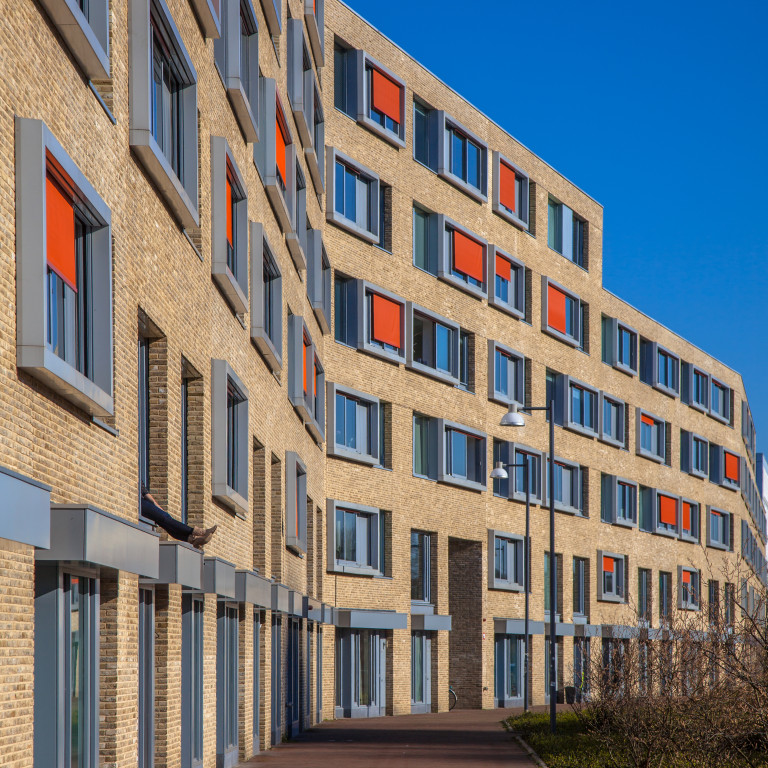1.0.0 The New Affordable Homes Programme
The new AHP 2021-26 (AHP 21-26) has been launched by Homes England. Bids for grant funding are now being accepted, although no grant allocations will be made until April 2021.
Homes England will be making available £7.39 billion from April 2021 to deliver up to 130,000 affordable homes by March 2026 (outside of London).
As with previous recent funding programmes, homes provided by S.106 planning gain will not be eligible for grant funding under the AHP 21-26.
There are some significant changes to the Shared Ownership model which will have an effect on Registered Providers who develop and sell these.
2.0.0 New Shared Ownership Lease
The new shared ownership lease includes key changes which could potentially have an impact on an RP’s business plan if not suitably planned for. The aim is to make shared ownership more accessible and affordable to encourage more people into home ownership.
This change will impact shared ownership units provided through S106 planning gain as well as those as part of Homes England’s AHP 2021-26 so even non grant funded units will be impacted by these changes.
2.1.0 Repairs
The new lease obliges the housing association to cover repairs to the property for the first 10 years from the practical completion date. After 10 years the lease becomes responsible for repairs as with previous shared ownership leases.
Repairs will be undertaken by the resident’s contractors and claimed back from the RP. The maximum a resident can claim for repairs is £500 per annum. Tozers recommends that RP’s development appraisals now include the full £500 per annum in maintenance assumptions for new shared ownership properties as these are likely to be claimed by shared owners.
These works do not cover heating or electrical servicing, which will still be the shared owner’s responsibility. This raises the issue that the RP could be liable for repairs to a heating system that has not been suitably maintained where it is difficult to tell if the fault is due to a lack of maintenance. Some RP’s are considering undertaking heating system servicing on shared ownership homes, the costs of which to be covered by a service charge, to reduce the likelihood and impact of such events.
The first year of the majority of repairs items would be covered under the defects liability period with the original developer/contractor.
2.2.0 Smaller Initial Share
The new model looks to reduce the minimum initial stake of the home that new buyers can purchase from 25% to 10%. The intention by reducing the minimum initial share is that it will allow people to access Shared Ownership with a lower deposit.
Homes England believe that this will generally mean that combined rent and mortgage costs will be lower, therefore increasing overall affordability of the model.
2.3.0 Smaller Staircasing Increments
The new model is intended to make it easier to purchase further shares in the home by allowing shared owners to buy in smaller increments. Currently, shared owners wanting to ‘staircase’ and progress to full ownership can only do so by buying at least 10% at a time.
Under the new model, shared owners will be able to buy 1% each year with heavily reduced fees for up to 15 years. For the new gradual staircasing model, the price of each 1% share will be based on an estimated valuation linked to the original purchase price, adjusted each year upwards or downwards in line with House Price Inflation. Shared Owners will not be required to get a RICS valuation each time they want to buy more shares.
An RP will be prohibited from charging admin fees on shares bought as part of this gradual staircasing model, which could further impact the viability of new shared ownership homes. Home England anticipate that buying in 1% tranches will make it much easier to staircase without additional lending, enabling shared owners to avoid additional mortgage fees. Shared owners wishing to buy larger shares will still be able to do so at any time through the existing staircasing process, but additionally the minimum share required to be purchased will be lowered from 10% to 5%. Tozers consider that the legal expenses incurred by a buyer in staircasing, are likely to be a deterrent for very small incremental purchases.
2.4.0 Resales
The current model gives RP’s an eight-week period during which they have the exclusive right to market the property (although some RP’s have waived this right). If an RP does not manage to identify a new buyer to purchase the seller’s share after eight weeks, the property can then be placed on the open market and sold either through Shared Ownership or outright.
Homes England perceive that sometimes, the eight-week nomination period can result in unnecessary delays. The new model will give shared owners the option to end the eight-week period at the four-week mark if they would prefer to pursue an open market sale, giving them greater power and influence over the resale process.
2.5.0 Right to Shared Ownership
Right to Shared Ownership (RTSO) will give tenants of affordable and social rented properties funded under the 2021-26 programme the right to move to shared ownership with similar increases of ownership from 2.3 above.
2.5.1 Key Features
Tenants will be able to buy between 10% and 75% of their home (based on RICS valuation). No discounts will apply to properties for RTSO. Tenants will then be able to buy further shares and staircase to full ownership, in line with the rules of the new standard Shared Ownership scheme.
The requirements regarding the rent, service charges, maintenance and repairs for the Right to Shared Ownership is the same as for the new Shared Ownership model.
2.5.2 Properties in scope
RTSO will apply as a condition on grant funding to all social and affordable rented homes built through the new Affordable Homes Programme 2021-26, other than those where a specific exemption applies.
An RP will have to approve a RTSO application unless the property is deemed exempt. This includes:
- homes in designated protected areas and rural exemption sites
- specialist homes for older, disabled and vulnerable people
- homes where RP leases properties from Community Land Trust as freeholder
An RP can also block the sale of a property where the current market valuation is below the total amount spent on building or acquiring the property, including any grant received.
2.5.3 Eligible Tenants
RP tenants will be eligible for the scheme if they satisfy certain criteria including:
- been a tenant of the RP for at least 2 years
- have lived in the current property for at least 12 months
- have been a tenant of social or affordable housing for at least 3 years (with the current RP or another landlord)
- are not in rent arrears, subject to possessions proceedings, bankrupt etc
- satisfy the other shared ownership model eligibility requirements
2.6.0 Modern Methods of Construction
The AHP 2021-26 places more emphasis on the use of Modern Methods of Construction (MMC). Strategic Partners are required to provide 25% of their funded homes using MMC. MMC is defined by the 7 Categories of the MMC Working Group.
Bids do not explicitly have to use MMC to deliver, but it will be considered as part of the funding allocation criteria.
We suspect most RP’s will seek to use MMC where appropriate on schemes funded under AHP 21-26 if they do not already.
Find out more
Our Affordable Housing team have over 25 years’ experience in this sector, forming close working relationships with their housing clients. To find out more about the areas they advise on and their bespoke services please visit their hub page or contact a member of the team.






